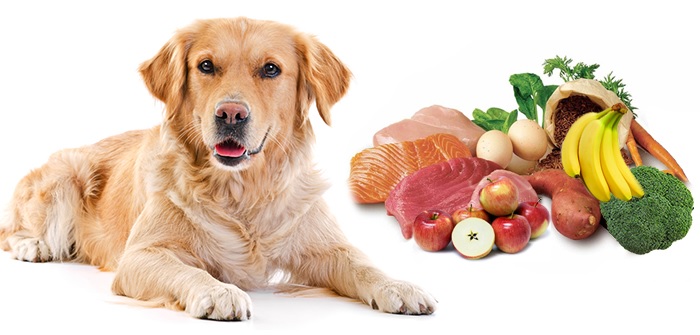When it comes to caring for your furry friend, ensuring they receive the right kind of food is one of the most important factors in maintaining their overall health and well-being. The right dog food can help your dog grow strong, stay healthy, and live a long, happy life. Whether you have a puppy, an adult dog, or a senior dog, choosing the right Dog Food List depends on various factors such as breed, size, age, and specific health concerns.
In this comprehensive dog food list, we will explore a range of dog food options, including dry kibble, wet food, raw food, and specialized diets, to help you make an informed decision about your dog’s nutrition.
The Importance of Choosing the Right Dog Food
Choosing the right dog food is essential for your pet’s health. Dogs, like humans, require a balanced diet to maintain energy levels, support immune function, and prevent obesity. An improper diet can lead to various health issues, including digestive problems, joint pain, skin conditions, and even behavioral problems.
Factors to Consider When Choosing Dog Food
- Breed and Size: Different breeds and sizes have varying nutritional needs. Large breeds need food that supports joint health and proper bone growth, while small breeds may require calorie-dense food to maintain their energy levels.
- Age: Puppies, adults, and senior dogs have distinct dietary needs. Puppies need food that supports growth and development, while senior dogs may require food with added nutrients to support aging joints and cognitive health.
- Health Conditions: Some dogs have allergies, sensitivities, or specific medical conditions that require specialized food. Always consult with your veterinarian if your dog has special dietary needs.
Types of Dog Food
Dry Dog Food (Kibble)
Dry dog food, or kibble, is the most commonly used type of dog food. It’s convenient, affordable, and can be stored for longer periods without spoiling. Dry kibble typically contains a mixture of proteins, fats, carbohydrates, and fiber. However, it’s important to choose high-quality kibble that doesn’t rely on fillers like corn or soy.
Benefits of Dry Dog Food
- Convenient and easy to store
- Helps maintain dental health by scraping off plaque
- Cost-effective
Wet Dog Food (Canned Food)
Wet dog food typically comes in cans and has a higher moisture content compared to kibble. It is often preferred by dogs with dental issues or those who don’t drink enough water. Wet food can also be more palatable for picky eaters.
Benefits of Wet Dog Food
- Increased hydration due to high moisture content
- More appetizing for picky eaters
- Easy to chew for dogs with dental issues
Raw Dog Food (BARF Diet)
The BARF (Biologically Appropriate Raw Food) diet consists of raw meat, bones, fruits, and vegetables. It mimics a dog’s natural diet and is believed to provide more nutritional benefits compared to cooked food. However, raw food diets can be challenging to prepare and require careful handling to avoid contamination.
Benefits of Raw Dog Food
- Improved digestion due to natural enzymes
- Better coat and skin health from nutrient-rich food
- Higher energy levels
Freeze-Dried Dog Food
Freeze-dried dog food is another option that preserves the nutrients in raw food without the risk of bacterial contamination. This food retains much of the natural enzymes and nutrients that are beneficial for your dog’s health.
Benefits of Freeze-Dried Dog Food
- Long shelf life
- Preserved nutrients from raw food
- Easy to serve and store
Best Dog Food Brands: Top Picks for Your Pet

When choosing a dog food brand, it’s important to select one that uses high-quality ingredients. Here are some of the top dog food brands that cater to different needs:
1. Hill’s Science Diet
Hill’s Science Diet is widely recommended by veterinarians for its scientifically formulated recipes designed for specific age groups, breeds, and health conditions. It offers both dry and wet food options with a focus on digestive health, skin health, and immunity.
Notable Features:
- Veterinary recommended
- Tailored for specific life stages
- No artificial colors or flavors
2. Blue Buffalo
Blue Buffalo is known for using natural ingredients and offering a variety of recipes to meet different dietary needs. They provide grain-free options, as well as foods designed to promote joint health and digestive health.
Notable Features:
- Grain-free options
- Real meat is the first ingredient
- Supports immune health and joint health
3. Orijen
Orijen is a premium brand that focuses on biologically appropriate dog food with high protein content. Their recipes feature fresh, regionally sourced ingredients and a variety of meats, including chicken, turkey, and fish.
Notable Features:
- High-protein content
- Regionally sourced ingredients
- No fillers like grains or potatoes
4. Royal Canin
Royal Canin is a highly respected brand in the veterinary community. They offer specialized food for different breeds, sizes, and medical conditions. Royal Canin’s formulas focus on the nutritional needs of specific dog breeds and their individual requirements.
Notable Features:
- Breed-specific formulas
- Supports specific health needs
- Widely recommended by veterinarians
5. Acana
Acana is another high-quality dog food brand known for its meat-first approach. Their formulas include fresh, regional ingredients, and they offer both grain-inclusive and grain-free options. Acana is known for providing balanced nutrition that supports your dog’s overall health.
Notable Features:
- Fresh, regional ingredients
- Balanced and nutritious formulas
- Wide range of recipes for various needs
Specialized Dog Food Diets
1. Grain-Free Dog Food
Grain-free dog food is ideal for dogs with allergies or sensitivities to grains such as corn, wheat, and soy. It typically replaces grains with alternative carbohydrate sources like sweet potatoes, peas, or lentils.
Benefits:
- Helps dogs with food allergies
- Supports digestive health
- Promotes a shiny coat
2. Hypoallergenic Dog Food
Hypoallergenic dog food is designed for dogs with food allergies or sensitivities. It often contains novel protein sources like venison or duck and avoids common allergens such as chicken or beef.
Benefits:
- Reduces allergic reactions
- Supports immune function
- Promotes healthier skin and coat
3. Senior Dog Food
Senior dog food is formulated to meet the nutritional needs of aging dogs. It typically contains joint-supporting ingredients like glucosamine and chondroitin, as well as lower fat content to prevent obesity.
Benefits:
- Supports joint health
- Promotes brain function
- Contains fewer calories for weight management
4. Puppy Food
Puppy food is specially formulated to meet the growth and development needs of young dogs. These formulas are rich in protein and fat to support rapid growth and development, especially for large-breed puppies who have specific nutritional needs.
Benefits:
- Supports healthy growth and development
- High protein and fat content
- Essential nutrients for brain and eye development
Conclusion: Finding the Right Dog Food List for Your Pet
Choosing the right dog food from the dog food list can seem like a daunting task, but with careful consideration of your dog’s age, size, breed, and any special health concerns, you can provide your pet with the best nutrition possible. Whether you choose dry kibble, wet food, or a raw food diet, it’s important to always read the ingredients and choose high-quality food that is specifically tailored to your dog’s needs.
By selecting a reputable dog food brand and feeding your dog a balanced diet, you ensure that they live a healthy, happy, and active life. Always consult with your veterinarian if you’re unsure about which food is best for your dog, especially if they have any health issues that require specialized diets.
